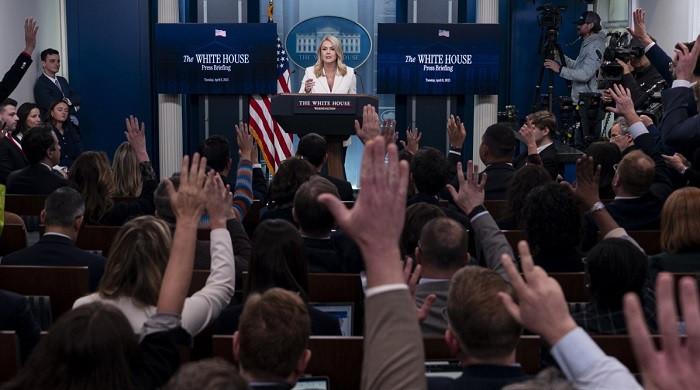- Journalists will need to make an appointment to meet the press officer.
- This decision follows the repression of press access to the Pentagon.
- The new rule takes effect immediately.
A new White House rule released Friday restricts the ability of accredited journalists to freely access the offices of press secretary Karoline Leavitt and other senior communications officials in the West Wing, near the Oval Office.
The new memorandum from the National Security Council prohibits journalists from accessing Room 140, also known as “Upper Press,” without prior appointment, citing the need to protect potentially sensitive documents. He said the change would take effect immediately.
The White House move follows restrictions put in place earlier this month for Defense Department journalists, a move that prompted dozens of reporters to leave their Pentagon offices and surrender their credentials.
The National Security Council said the change was made because structural changes to the NSC mean White House communications officials now “routinely handle sensitive materials.”
“In order to protect these materials and to maintain coordination between National Security Council staff and White House communications staff, members of the press are no longer permitted access to Room 140 without prior authorization in the form of an appointment with an authorized White House staff member,” the memo said.
Previously, accredited White House reporters could access Room 140, located just steps from the Oval Office, on short notice to speak with Leavitt, his deputy Steven Cheung and other senior officials.
The White House Correspondents Association, which represents journalists covering the White House, could not be reached for immediate comment.
A few months ago, the Trump administration removed Reuters, Associated Press and Bloomberg News from the permanent “pool” of journalists covering the president, while allowing those outlets to participate sporadically.
Friday’s announcement comes weeks after the Defense Department’s crackdown on press access, which now requires media outlets to sign a new policy or risk losing access to press credentials and Pentagon workspaces.
At least 30 news organizations, including Reuters, have refused to accept the Pentagon’s restrictions, citing a threat to press freedom and their ability to conduct independent news gathering.
Pentagon policy requires journalists to acknowledge new rules on press access, including that they could be labeled a security risk and have their Pentagon press badges revoked if they ask department employees to disclose classified and certain types of unclassified information.




